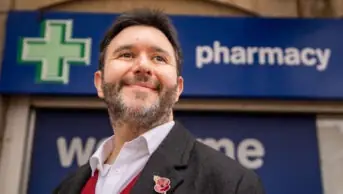
Shutterstock.com
In its “one nation approach” to “give everyone the opportunity to improve their lives”, the UK government has announced that it will launch a full-scale review to investigate whether people who are obese and those with drug or alcohol addiction should have their state benefits withheld unless they accept treatment.
Dame Carol Black, expert adviser to the Department of Health and Public Health England, will complete the review before the end of 2015. Prime Minister David Cameron said in February that he wanted to investigate how to treat those who are severely overweight and those with addiction problems who refuse treatment. “We must look at what we do when people simply say ‘no thanks’ and refuse that help but expect taxpayers to carry on funding their benefits,” he said.
There are already misconceptions about obesity and addiction and stigma associated with these conditions. This stance further propagates the misguided view that those with obesity or drug addiction are lazy and these types of diseases are solely a result of bad lifestyle choices. This is evidently not true.
For example, drug and alcohol addiction are often associated with other underlying health issues, such as depression and anxiety. And the causes of obesity are complex and multifactorial. There is increasing evidence that the microbiome, genetics and even epigenetics are risk factors of disease metabolic disorders that make someone prone to obesity. And, again, the condition is exacerbated by stress and poor mental health.
Who would enforce such a crude policy? Surely not doctors — because this puts them in conflict with core principles of the law and medical ethics. Also, they would effectively be going against the wishes of a patient who has chosen not to consent to treatment but is now under duress to consent on threat of having his or her benefits withdrawn. A doctor or healthcare professional who threatens a patient with the loss of benefits would be in breach of the General Medical Council’s guidance on good medical practice consent.
There is something fundamentally wrong with singling out patients who are on benefits to be given this type of treatment
The proposed strategy, however flawed, to encourage only social disadvantaged people to accept treatment while those financially better off can decide on treatments is unjust. There is something fundamentally wrong with singling out patients who are on benefits to be given treatment.
Moreover, this discussion fails to acknowledge that the best available treatments for obesity and addiction are far from effective. Patients who are coerced into treatment are probably even more unlikely to be treated successfully. And while this lessens the burden on the state to provide people with social welfare, it will do little to lessen the burden of disease.
The latest move by the government to try to “improve lives” is, at best, a political gimmick.


